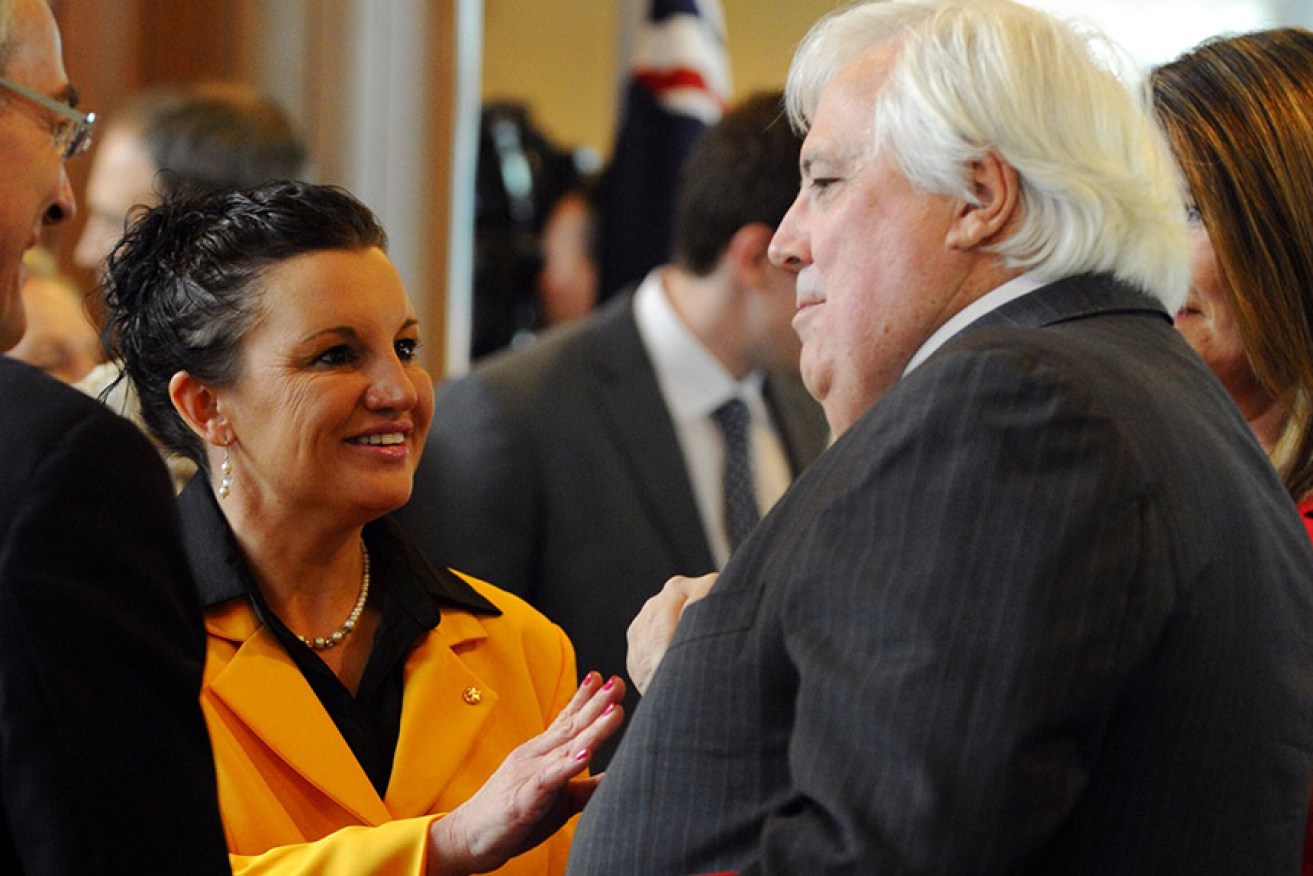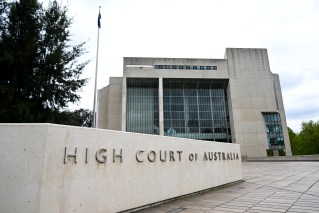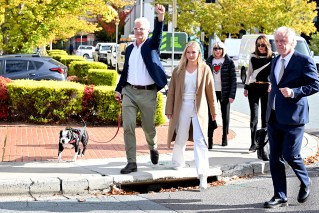Palmer deal a carbon tax killer


The Abbott government appears confident of axing the carbon tax this week despite an early blow dealt by the new Senate cross bench.
Senators elected in September were sworn in on Monday by Governor-General Peter Cosgrove and quickly got down to business.
Labor and the Greens were surprised when Palmer United Party (PUP) senators agreed to delay a vote on the carbon tax repeal bills.
The move denied the government, which now holds 33 Senate seats, the six extra crossbench votes it needed to pass a motion to bring on the bills immediately for debate.
Government Senate Leader Eric Abetz said Labor and the Greens were using the “dead hand of the old Senate” to block discussion of the legislation, which the government says will deliver an average $550 a year cut to household power bills.
The government agreed to a PUP amendment which would guarantee electricity and gas prices will fall, paving the way for the bills to pass.
“At last discussion, everybody was very happy,” Environment Minister Greg Hunt said.
PUP leader Clive Palmer declined to use the government’s much-vaunted $550 figure when asked how the guarantee would work.
“That is not our figure – that is the prime minister’s figure,” Mr Palmer said.
“All we can do in the amendment is provide that whatever the reduction of carbon price cost to the generator, that will have to be passed on to the consumers.”

Tony Abbott seized the first opportunity to try the new senate on for size. Photo: AAP
The key to amendment is requiring an energy supplier to give the consumer watchdog a written statement outlining the supplier’s estimate on an average annual percentage price basis, or an average annual dollar price basis, of its cost savings attributable to the carbon tax repeal.
PUP will also seek to amend a bill which would deliver the government’s Direct Action plan, but only if an emissions trading scheme is put on pause until Australia’s trading partners act in unison.
Mr Hunt said he hoped to convince crossbench senators that not enacting the Direct Action plan quickly after the carbon tax is abolished would leave Australia with “a gap” in terms of addressing climate change.
The government also faces a frustrating time negotiating the end of the mining tax and a raft of other measures which could create a $9 billion budget blowout.
Mr Palmer says he will repeal the mining tax, but only if the SchoolKids Bonus and superannuation support for low-income earners are retained.
The government’s prospects of deregulating university fees is in doubt, with Mr Palmer flagging support for free education.
The proposed $7 GP visit co-payment outlined in the budget is also in jeopardy, after Mr Palmer told the National Press Club of four female pensioners who pooled their money to go to the movies.
“I couldn’t care if we had the biggest debt in the world,” he said.
“Those ladies are going to have their chocolate and go to the cinema.”
AAP








